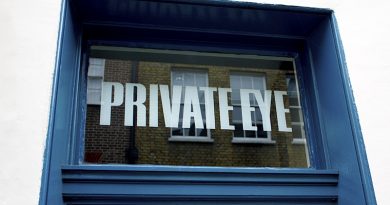Farewell, Jon Stewart: Satirist and journalist leaves The Daily Show
Posted by Dr Allaina Kilby.
It’s officially the end of an era. Last night, after 16 years as the chief anchor of The Daily Show, Jon Stewart made his last address to the American people.
Since the announcement of his departure there have been a myriad of blogs and articles praising Stewart’s impact on American politics, popular culture and the field of satire itself. Indeed, it’s hard to argue against the rise of Stewart’s symbolic capital and the admiration bestowed upon him.
It was on The Daily Show that Jon Stewart, the comedian, came into his own. After replacing former host, Craig Kilborn in 1999 Stewart, and his writers, transformed The Daily Show from a variety-esque cable programme to an award winning satirical news platform. Stewart had found his niche, a meta journalistic role that involved mocking and holding the media and political establishment accountable and, at the same time, encouraging us to think critically about how news is constructed – unpacking it and questioning it, rather than consuming it as the absolute truth. It is the ease and potency that Stewart brought to this role that gained the respect of journalists and academics alike. When praised on his cultural significance Stewart is always modest in his response. He characterises himself as a comedian who tells jokes about the news, a role he believes made much easier due to the failings of American TV News that trades in sensationalism, conflict and laziness.
Stewart’s critical take on the news have been perfectly captured in many of his interviews and media appearances. After the near collapse of the economy in 2008, Stewart interviewed CNBC’s financial pundit, Jim Cramer. This was a tough investigative interview where Stewart asked questions that mainstream journalists should have been asking but didn’t. This included an interrogation of Cramer’s suggestion that viewers should invest in the global investment bank Bear Stearns just before its collapse.
With partisan political commentary becoming a staple fixture in American news, Stewart has continually advocated a more deliberative and less aggressive form of political dialogue. In his renowned interview on CNN’s Crossfire, Stewart argued that instead of providing political debate the show had become a contrived piece of partisan political theatre posing as a viable public affairs programme. The audience cheered and CNN obviously took note as weeks later Crossfire was cancelled.
Shifting the Boundaries of Journalism
Stewart’s ability to blur the lines of journalism and satire has proved popular, not just with audiences, but with journalists and pundits too. A study on the renegotiation of journalistic boundaries in the US, found that the journalistic community had re-evaluated their thoughts on hybrid political satire. Stewart in particular went from being an outsider of the journalistic community, to eventually having fully fledged membership (Tenenboim-Weinblatt 2009). This is evident in the many appearances that Stewart has made on American news to discuss politics and the state of the media. More interesting, is how some sections of the American news media, namely cable, have started to adopt some of Stewart’s comedic traits. Pundit Bill O’Reilly regularly features right-wing comedian, Dennis Miller to give his slant on news events. MSNBC host Rachel Maddow has also commented that what she and Stewart do is not that different; using humour to tell a story An observation that Stewart was clearly not enamored by.
Political Platform
The political establishments reluctance to engage with satirical platforms for fear of being mocked has also relaxed since the rise of The Daily Show brand. For any politician seeking high office, an appearance on the show provides them with access to audiences they might not reach on traditional news formats. It also gives them the opportunity to project their non-political persona and to show that they have a sense of humour too. Over the years politicians have clambered to be interviewed by Stewart, with Barack Obama being one of the most reoccurring guests and the only sitting president to appear on the show.
Stewart’s relationship with the political elite wasn’t solely confined to the walls of his New York studio. Recent news reports found that he had secretly met with President Obama at the White House on two occasions to discuss policy issues . Some may view this discovery as legitimacy that Stewart is propaganda mouthpiece for the left but it also shows how the Obama administration have recognised the influence that Stewart has over has over American politics. Senior Communication Staff at the White House were quick to point this out, describing Stewart as the Walter Cronkite for the millennial generation, which is why it was important to meet and engage with him.
Perhaps part of Stewart’s decision to leave the show is linked the limitations of his satirist position. In recent years, he’s attempted to push the boundaries of his work further by adopting the role of both advocacy journalist and social commentator. Stewart’s campaigning of the Zadroger Act, both inside and outside of The Daily Show, helped this virtually unknown piece of legislation gain wide spread media coverage and many advocates believe he was responsible for the eventual passing of the Bill in the US Senate. Stewart also made his directorial debut this year for his film Rosewater; a film based on the experiences of Iranian journalist Mazier Bahari who was held prisoner in Iran 2009. This was a story that Stewart felt compelled to tell given that Bahari’s prison stay was linked to an appearance he had made on The Daily Show, the video of which was used as evidence of him being an American spy.
Whatever the future holds for Stewart his departure does not signal the demise of American satire. The Daily Show will soon be taken over by South-African comedian Trevor Noah who promises to broaden the show’s focus on the 24 hour news environment by incorporating new media platforms like Buzzfeed in its media critique . The US also has Britain’s very own John Oliver who has achieved critical acclaim for his role as satirical news anchor on his HBO show Last Week Tonight with John Oliver.
America has experienced some great instances of satirical skewering from figures like Jon Stewart, Bill Maher and Stephen Colbert. Unfortunately, this is an area where the UK is lagging behind. Yes we’ve had The Thick of It and Newswipe but no UK satire television has come close to having the cultural impact that Jon Stewart has had. The most successful and longstanding UK satire comes in the form of TV panel shows like Have I Got News for You or Mock the Week. However these shows have been kept in a coma-like state of survival so they lack the critical and investigative flair of their American counterparts. Frankie Boyle makes a similar observation about the state of British satire. He believes that Britain is crying out for its own version of The Daily Show but TV executives are afraid to take risks. They want satire with an ‘establishment’ voice rather than a format that thinks for itself and challenges the British media and political system
The UK has a lot to learn from Stewart’s brand of satire. He’s left behind an incredible legacy of smart biting humour that helped articulate the intangible to his nightly audience. His departure will certainly leave a massive hole in American political satire that, with any luck, will be filled by Trevor Noah and Stephen Colbert’s return to late night TV. The future still looks bright for American satire and its hybrid mix of comedy of journalism so let’s hope this is an approach that British satirists intend to pursue too.
Allaina Kilby’s PhD focused on The Daily Show with Jon Stewart and Political Citizenship.
Illustration by Ellie Foreman-Peck (http://www.theguardian.com/commentisfree/2015/jul/22/political-satire-jon-stewart-the-daily-show


